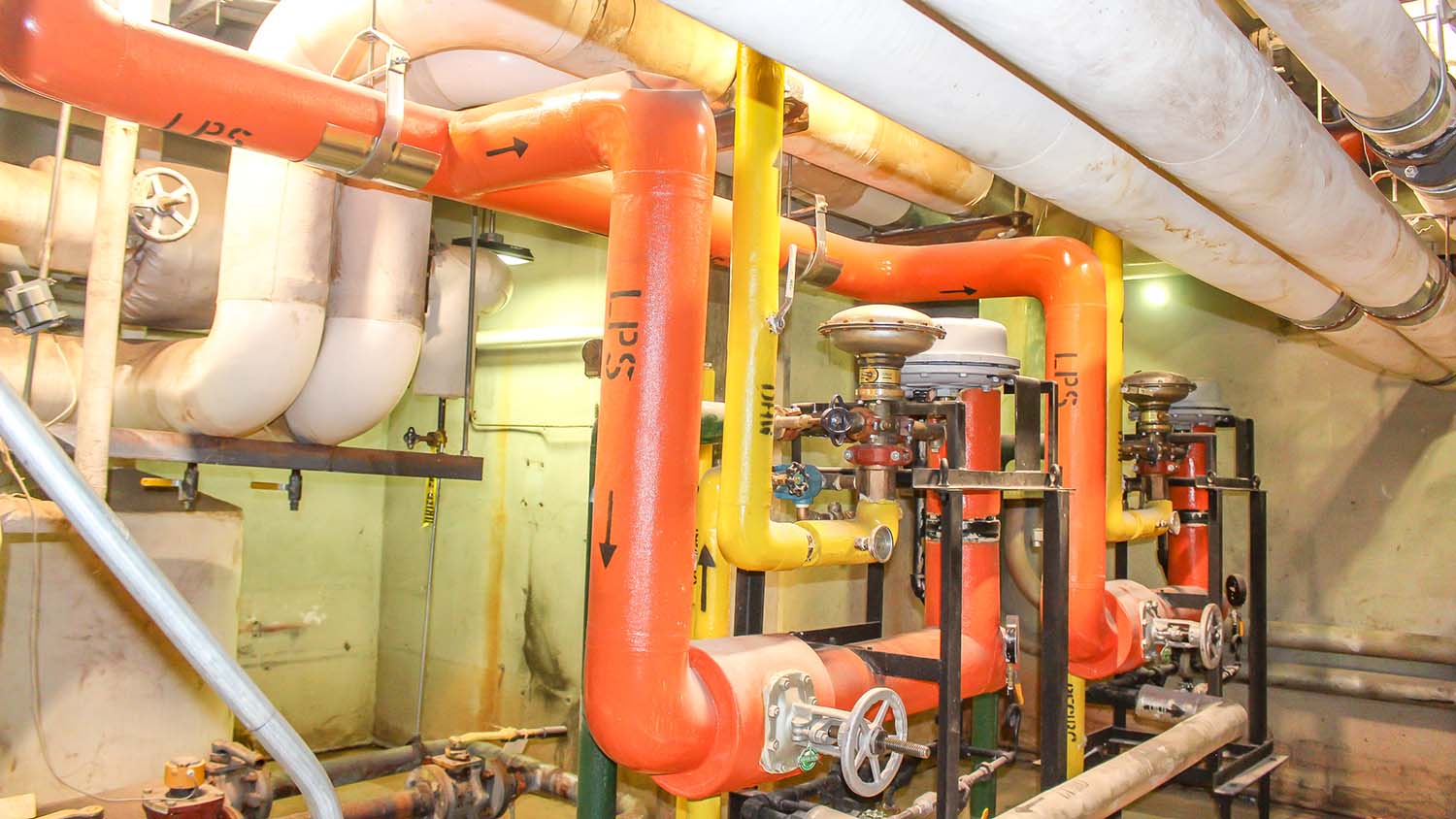Residence Hall Plumbing Upgrade Saves Water

On New Year’s Day in 2018, Sean Fokes of the Division of Academic and Student Affairs (DASA) Facilities found a leak in one of the 2,000-gallon tanks that holds water for the domestic hot water system in Bragaw Residence Hall.
Instead of repairing the 60-year-old tanks, Fokes had the tanks replaced with much smaller instantaneous water heaters. In the course of that upgrade, the recirculation loop that runs the hot water around the building was also upgraded.
Little did Fokes or the rest of DASA Facilities know that this one change would result in a 40% decrease in water consumption. Since the upgrade, water usage in Bragaw has been consistently down, resulting in nearly $20,000 of annual avoided water costs.
“If [someone] goes to a shower and the water isn’t hot, they’re going to let it run until it gets hot. So, if that takes five to 10 minutes and they take a shower for five to 10 minutes, you’ve effectively doubled the water they’ve used for that shower,” explained Fokes.
With the positive results from Bragaw Residence Hall, these upgrades are now being implemented in residence halls across campus. In November 2019, Lee and Sullivan Residence Halls’ recirculation loops were also upgraded. Next, DASA Facilities will be targeting the domestic hot water systems in Owen and Tucker Residence Halls.
Replacing the 2,000-gallon water tanks in Bragaw and other residence halls also reduces maintenance costs. The outdated tanks required annual maintenance check-ups where the entire tank was emptied and cleaned to repair cracks. The new instantaneous water heaters require little maintenance and can go several years without repairs.
Building upgrades such as replacing the domestic hot water systems in residence halls helps reduce water consumption in campus buildings. As part of the Sustainability Strategic Plan, NC State is working to reduce campus water consumption per gross square foot by 65 percent (as compared to the 2001 baseline) by 2022. Since implementing the strategic plan in 2017, campus potable water use has decreased by 50 percent.